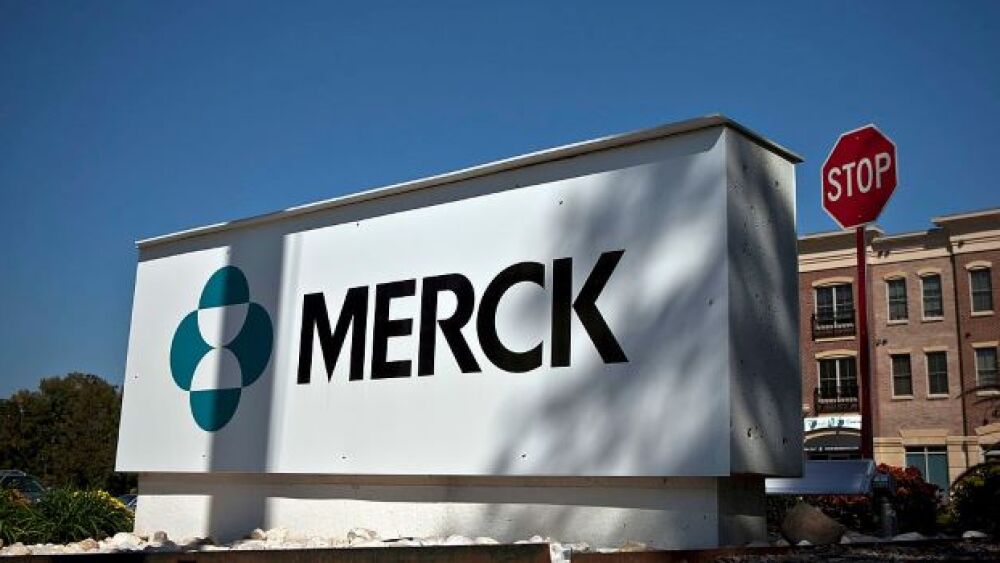Merck entered into a license and collaboration agreement with Chinese company Kelun-Biotech to develop seven antibody-drug conjugates candidates against oncology targets.
Courtesy of Getty Images
Thursday, Merck entered into a license and collaboration agreement with Chinese company Kelun-Biotech to develop seven antibody-drug conjugates (ADC) candidates against oncology targets.
Under the terms of the deal, Merck will pay $175 million for future exclusive rights to research, develop, manufacture and commercialize the preclinical ADC therapeutics, as well as for the option to license additional ADC candidates.
Kelun will retain all rights to its ADC candidates in mainland China, Hong Kong and Macau.
The collaboration will also see Merck make an equity investment in Kelun.
Aside from the upfront payment, Kelun will also be eligible to receive future regulatory and sales milestones of $9.3 billion, given that the Chinese biotech doesn’t keep its mainland China, Hong Kong and Macau rights to the option ADCs, and that all candidates are approved.
Kelun will also receive tiered royalties on net sales of ADC products.
Thursday’s licensing deal follows a previous research collaboration, announced in July, which saw Merck make an upfront payment of $35 million for exclusive rights to one of Kelun’s investigational ADCs. This agreement can yield $901 million plus tiered royalties on net sales for the Chinese partner.
Previously, Merck had also exercised its option for global rights, minus the greater China region, to Kelun’s SKB-264 (also called MK2870), an anti-TROP2 ADC currently in late-stage clinical trials.
In a prepared statement accompanying Thursday’s announcement, Dean Y. Li, president of Merck Research Laboratories, said that the Kelun partnership is part of the company’s efforts to supplement our oncology pipeline.
Merck Deepens Oncology Pipeline with ADC Partnerships
The Kelun partnership is in line with Merck’s strategy of developing and maintaining a robust cancer pipeline. In October 2020, the company signed two strategic deals with fellow powerhouse Seagen, both in cancer.
In one of these deals, Merck licensed Seagen’s HER2-positive-cancer drug Tukysa (tucatinib) in Asia, the Middle East and Latin America, putting forth $125 million.
The second saw Merck pay $600 million in cash and $1 billion in equity investments for the right to develop Seagen’s ADC ladiratuzumab vedotin in triple-negative and HR-positive breast cancers, as well as other LIV-1-expressing solid tumors. The partners are investigating ladiratuzumab vedotin as a monotherapy and in combination with Merck’s blockbuster Keytruda.
Reports started circulating in June this year that Merck was interested in acquiring Seagen, though talks had stalled due to pricing disagreements, nothing concrete has come out of it yet.
Aside from Seagen, Merck’s recent forays in the ADC space include a $2.75 billion buyout of VelosBio in 2020 for the latter’s anti-ROR1 ADC for hematologic malignancies and solid tumors and a research pact with Australian biotech Starpharma to produce next-generation ADCs, signed in August.






